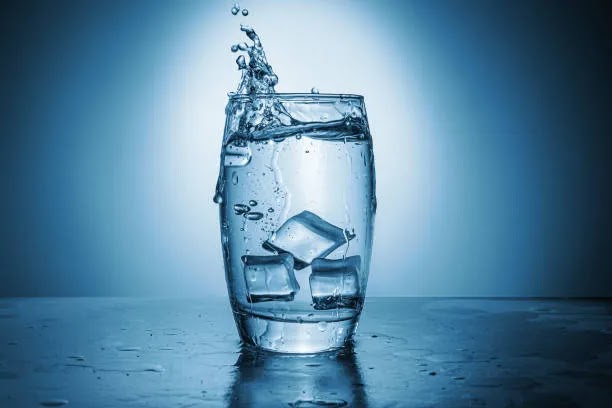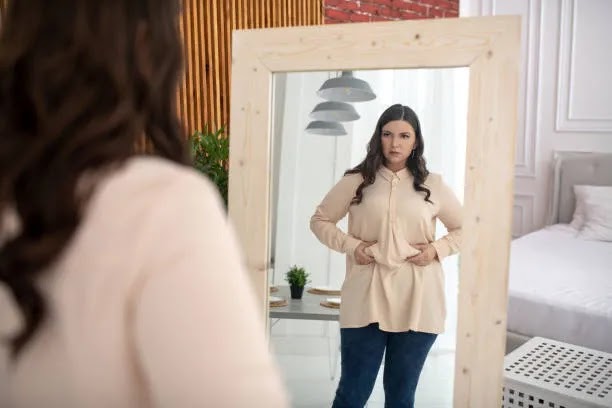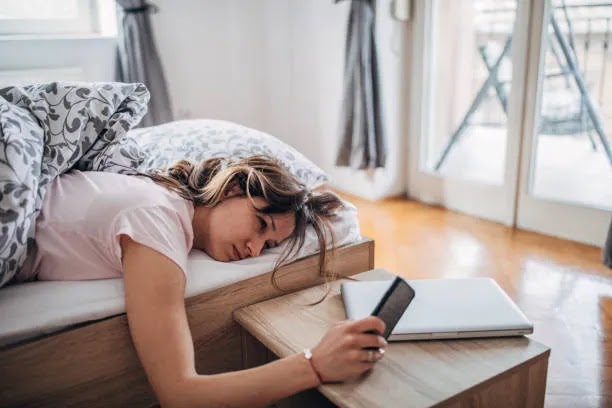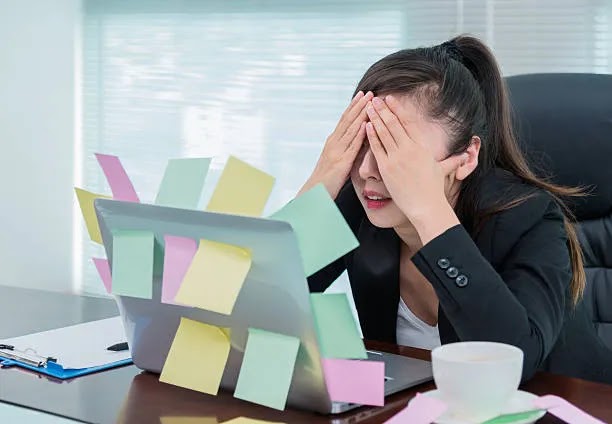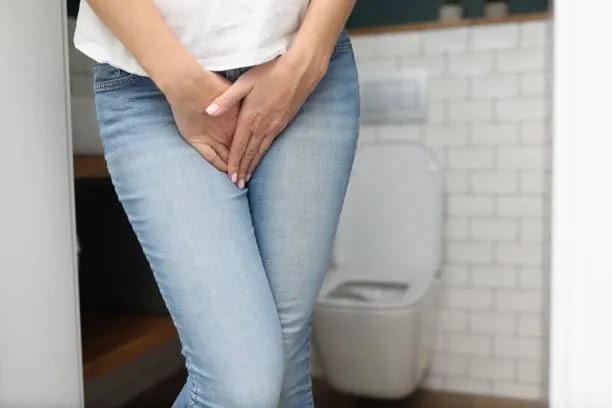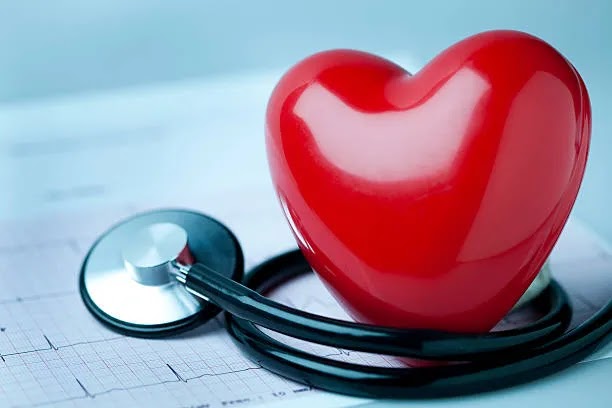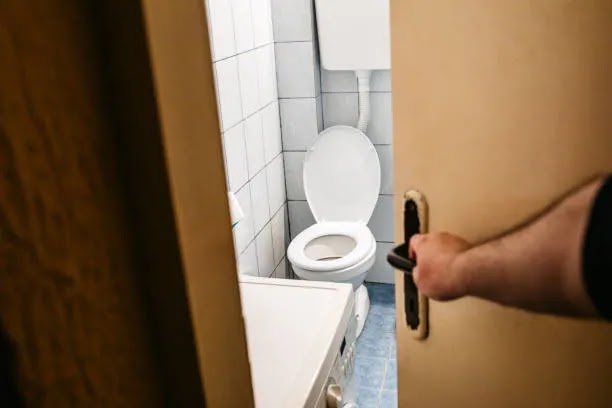Never Drink Water Before Bed
These Articles Do NOT Provide Medical Advice
Consult Your Doctor Before Beginning ANY Diet
This Is Why You Should Never Drink Water Before Bed
By Lekhak January 27, 2022
This is the one, and only time you should not drink water. The reason for this is quite simple.
One of the essential elements in the human body is water. When you don’t drink enough water, your body dehydrates, making you look puffy. That’s because when you’re dehydrated, your body tries to hold on to every last drop of water it can, creating the appearance that you’ve gained some weight. Nobody wants to hear that when attempting to drop 10 pounds! But here’s the thing: there’s a right time and a wrong time to drink.
And drinking water right before bedtime might not be the best idea.
Why shouldn’t you drink water before going to bed?
It was completely intentional that drinking water wasn’t placed on our list of things to do before bed to lose weight. “If you drink too much before bed,” says Erin Palinski-Wade, RD, CDCES, LPN, CPT, “you may find yourself waking up many times in the middle of the night to urinate.”
And, like water, sleep is a critical component of achieving your weight loss goals. The suggested 6-8 hours of sleep significantly affects your life. According to a study published in Environmental Health Perspectives, shorter sleep has been linked to obesity, hypertension, and other metabolic diseases.
Palinski-Wade suggests an easy solution: cut back on our favorite zero-calorie beverage three hours before you plan to go to bed. Your body will be able to process within this time limit, and you will be able to use the restroom before your beauty sleep is disrupted.
However, just because you shouldn’t drink water before bed doesn’t mean you should give up on your water consumption goals! Dietitian Jim White, RD, ACSM, suggests drinking 64 ounces of water each day, equal to eight 8-ounce glasses. Your weight loss goal becomes more attainable if you drink the required amount. Drinking enough water can speed up your metabolism, make you feel fuller for longer, and keep your energy levels at an all-time high. A review published in the journal Obesity even found that women on four widely different but popular diets experienced more significant weight loss when drinking more water.
Start your day with a tall glass of water as you get up. There are only seven more to go! You’ll get numerous benefits if you continue to stay hydrated. Your body will thank you for it, from cleaner skin to more energy. Slow down at about 8 p.m. if you intend on turning off the lights around 11 p.m. to give your body enough time to absorb the water and have a pleasant seven hours of sleep. Next thing you know, your morning alarm is going off, and it’s time to start all over again!
What Happens to Your Body When You Stop Drinking Water
You may notice your pee turn bright yellow. But did you know that you can get bloated from dehydration?
Ever notice how we recommend drinking more water in basically every article on weight loss, health, and fitness? We’d hate to sound like a broken record, but water is imperative for your health. (Our bodies are, in fact, made up of about 60% water.) So, it’s not a bad idea to guzzle it and avoid dehydration so that your system functions properly. From stopping belly bloat to warding off diseases, getting enough water is one of the most important things you can do. There are some drastic physiological effects, so it’s better not to find out what happens when you don’t drink enough water.
Still, some people barely drink any water. And when these water-phobic people do drink, they might drink belly-busting beverages like soda or fruit juice. While you will get some water and hydration from these things—and you can get water from certain water-rich foods—you should still make hydration from plain water a priority.
Read on to find out more about what can happen if you don’t drink enough water. Fortunately, adding more water to your diet might be easier than you think. It just might take a conscious effort at first.
1. You gain water weight.
It sounds counterintuitive, but skimping on drinking water can actually cause water retention and temporary weight gain. “When you’re not drinking enough [water], your body holds every drop to prevent severe dehydration,” says Abbey Sharp, RD.
2. Your energy drops.
Feeling groggy? Skip the caffeine and drink water instead. “Yes, you should drink plenty of water during the day to stay hydrated. In fact, even slight dehydration can significantly drain your energy levels,” Erin Palinski-Wade, RD, CDE explains.
3. You lose focus.
The fundamental element of life is also essential to finding great ideas. Made of 80 percent water, your brain’s abilities and functions seriously depend on it. Even slight dehydration impairs its abilities, making any eurekas a challenge. A study in the journal Nutrients found that drinking water can prevent memory and attention decline.
4. Your risk of stroke increases.
Not only can dehydration make you take longer for you to recover from a stroke, but it can actually make it worse, according to a study in BMC Cardiovascular Disorders. Not a huge fan of straight, nothing-added water? Try a fruity detox water to hydrate you while giving you an extra squeeze of citrus and other bloat-busters.
5. You get crankier.
Feeling cranky? Forgoing H2O may be the worst thing you could do. Two studies from the University of Connecticut put men and women through a series of cognitive tests and found that even being mildly dehydrated affected their moods and caused fatigue and headaches.
6. You feel hungrier.
It’s very common to confuse hunger with dehydration. If your stomach is growling, your best bet is to drink some water. “Try drinking water and waiting 20 minutes before grabbing that snack you’ve been eyeing,” says nutritionist Amy Shapiro, MS, RD. She also urges replacing sugary drinks like soda, juices, or sports drinks with water.
7. Your metabolism tanks.
Nixing water from your diet can seriously derail your weight loss plans, proven by a study from The Journal of Clinical Endocrinology and Metabolism. After drinking approximately 17 ounces of water (about two tall glasses), participants’ metabolic rates increased by 30 percent. The researchers estimate that increasing water intake by 1.5 liters a day (about six cups) would burn an extra 17,400 calories over the course of the year—a weight loss of approximately five pounds!
8. You get headaches.
Before you reach for the Tylenol, try chugging water when your head hurts. The previous study we just mentioned found dehydration can also lead to headaches.
9. Your skin worsens.
Water helps to plump up your skin, so you should be able to imagine what dehydration will do. When you don’t drink enough water, the collagen begins to crack and bind together, causing fine lines and wrinkles to get more noticed. We rely on water to keep our insides sufficiently hydrated, too. So when you ditch it, expect your mouth, skin, and everything else to feel drier than normal.
10. Your workout performance suffers.
Your body cannot efficiently convert carbs into energy without ample water. And according to The Physiological Society, dehydration can lead to poor exercise performance. Not only will your workout sessions suffer but insufficient liquids in your body will also hold back the breakdown of fat.
11. You have more bathroom troubles.
Can’t poop? Your bathroom schedule is well maintained when your colon absorbs up to five liters of water per day, making it easier to go to the bathroom. See, when your body realizes that water is MIA from your system, it absorbs more—which makes it harder to expel waste says Nitin Kumar, MD, a gastroenterologist.
12. Your kidneys will function poorly.
In order for your kidneys to work properly, you need water to dilute the blood. Without enough water, your kidneys have to work overtime to filter out the blood, says Kumar. And severe dehydration can also lead to failure or worse, kidney stones.
13. And so will your heart.
“When you’re dehydrated, your heart has to work harder to maintain blood flow when you stand up,” Kumar explains. “If you’re sufficiently dehydrated and your heart is not up to this task, the insufficient blood flow to your brain can result in fainting.”
14. Men may experience erectile dysfunction.
The hard truth? Not drinking enough water may keep a man soft. In a dehydrated state, you produce a greater amount of angiotensin, a type of hormone that is commonly found in men experiencing having difficulty achieving stable erections. Feeling thirsty yet?
15. You stop crying.
A lack of water will stop your tears (but only physically, not emotionally!). “Tear production is decreased when a person is dehydrated from not drinking water. The body tries to create homeostasis or keep fluid balance in check. When there is a decreased amount of fluid intake, the body stores the water to hydrate vital organs first,” says Elissa B. Gartenberg, DO.
16. Your pee changes color.

